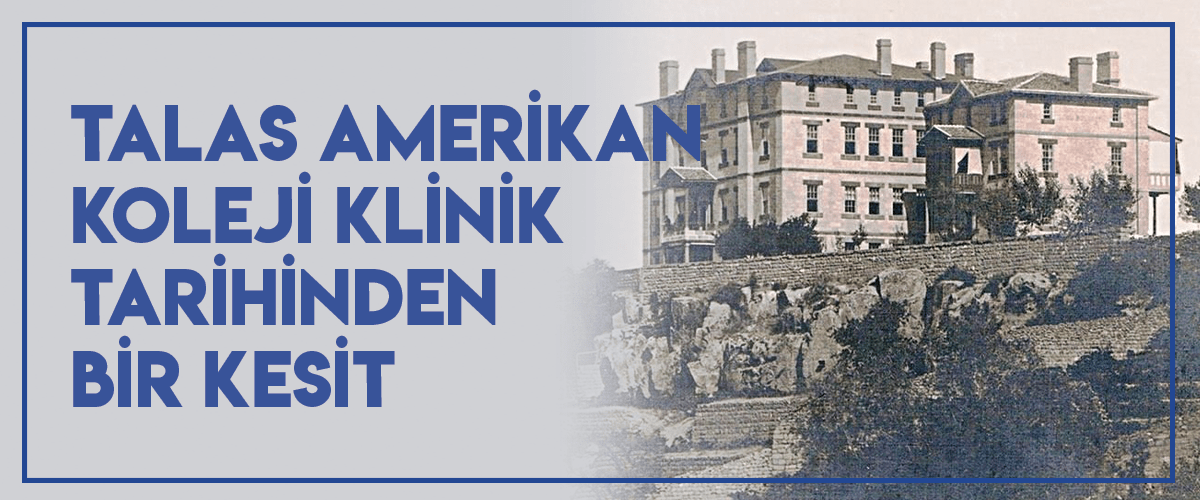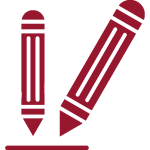Bu yazı, Talas Amerikan Koleji Klinik Tarihinden Bir Kesit adlı eserin analizidir. Kitabı göz önünde tutarak, bu çalışmanın amacı, zamanın Talas yerel tarihini ve Türkiye’nin sosyokültürel ve siyasi hayatını yansıtmaktır. Bu çalışmada derinlemesine mülakat yöntemi kullanılmıştır. Bu yöntem, görüşülen kişilere kendilerini birincil elden ifade edebilme fırsatı verirken, araştırmacıya da görüştüğü kişilerin anlam dünyalarına, bakış açılarına, içinde bulundukları özel durumlara ait, düşünce ve tecrübelerini anlama imkanı sunar. Yapılan derinlemesine görüşmeler, araştırılan konunun bütün boyutlarını kapsayan, daha çok açık uçlu soruların sorulduğu ve detaylı cevapların alınmasına imkan veren, yüz yüze, birebir görüşülerek bilgi toplanmasını sağlayan bir veri toplama tekniğidir. Bu tekniğin en önemli avantajı, gayet esnek, zengin ve olabildiğince detaylı bir şekilde veri toplanmasına olanak sağlamasıdır.
Dr. Winkler’in bu günlüklerinden yola çıkılarak kendisiyle yapılan derinlemesine mülakatlar ve o klinikte muayene olan bazı hasta ve hasta yakınları ile yapılan görüşmeler, sosyal değişmenin ne denli hızlı seyreden bir olgu ve süreç olduğu göstermektedir. Aynı zamanda, Talas’ın yerel tarihi ve Türkiye’nin sosyo- kültürel ve siyasi hayatı yansıtılmıştır. Doktorluğun, sadece bir hekimlik ötesinde sosyal dokuya nüfuz eden önemli bir meslek olduğu gözler önüne serilmeye çalışılmıştır. Bugün Türkiye’nin dört bir yanında görev yapan doktorlar kadrosunun esasen doktorluk görevlerinin yanı sıra önemli bir sosyal işlevlerinin olduğu bu çalışma ile tescillenmiştir. Doktorların tıbbi teknik bilgilerinin yanı sıra insanlarla ileri derecede iletişim kurabilecek düzeyde sosyal iletişim becerilerinin de gelişmiş olması gerekmektedir. Dr. Winkler’ın da böyle bir doktor olduğu söylenebilir.
Bir yılda yedi bin kişiyi muayene ettiği günlüklerinden öğrendiğimiz Dr. Winkler, zamanın Türkiye’si hakkında çok geniş bir bilgiye rahatlıkla sahiptir. Bir yerde bu bilgiler, Türkiye’de yaşayan ve halka bu kadar doğrudan temas edemeyen birçok eğitimli insanın ulaşabileceğinden daha da fazlaydı. Kendisi halkın takdirini kazanmıştır. Dr. Winkler’in 30 Ocak 1961 tarihli günlüğündeki şu ifadeler dikkate değer niteliktedir:
Benim gibi Hristiyan misyonerin gösterdiği ilgi ve alakaya insanların bu kadar dostça karşılık vermeleri beni çokça memnun etmişti. Bizim ulaşmak istediğimiz ve bu kadar çok emek harcadığımız amaç da insanların bizdeki bu dostça gayreti takdir etmeleriydi.
Dr. Winkler yaptığı işten dolayı toplumsal dokuyu rahatsız edecek muhtemel davranışlardan kaçınmıştır. Genelevden gelen bir kadını muayene ederken “Bir misyoner kliniği için hiç de uygun bir durum değil.” demiştir. Bu günlüklerden dönemin Kayseri ve Talas’ının sosyokültürel hayatı hakkında günümüzle kıyaslayabileceğimiz birinci elden bilgiler edinebiliyoruz. Gelin kaynana sorunları, erkek çocuk beklentisinin hayli yüksek olması, kız çocuğu ardından erkek çocuğu beklentisiyle tekrar tekrar çocuk yapma girişimleri, sık sık günlüklerde rastlanan rutin vakalardır.
Klinikte uygulanan ücret tarifesi nispeten düşüktür. O dönemde daha çok köylülere hitap eden kliniğin muayene ücreti ortalama olarak bir işçi yevmiyesine denk gelmiştir. Maddi durumları olmayanlardan kimi zaman muayene veya ilaç ücreti alınmadığı da oluyor.
Kiniğe hastalar köylerinden çeşitli hediyeler getirmektedirler: külek yoğurt, tavuk, bir sepet yumurta, koyun keçi postu, mermer testi, çeşitli köy ekmekleri, bir tutam çiçek, peynir, vs. Kliniğe giden hastaların cinsiyet oranları şudur: %70 erkek, %30 kız. Bu oran, eğitim alanında da geçerli zamanın Kayseri’sinde.
Erkek çocuk beklentisi hatta saplantısı hat safhadadır. Kız çocuklarına karşı bir önyargı söz konusudur. Ayrıca kız çocukları küçük yaşta evlendirilmektedir. O dönemle günümüz kıyaslandığında alınan mesafenin ne kadar çok olduğu görülmektedir.
Köylülerin yanı sıra kliniğe çevre illerden de hastalar gelmektedir. Kayseri merkezin yanında Yozgat, Sivas, Niğde illerinden de gelen hastalar oluyordu. Genel olarak hasta gelen ilçe isimleri ise; Sara, Uzunyayla, Cebir Köyü, Tomarza, Ürgüp, Kepez, Başakpınar, Pınarbaşı, Sakaltutan. Dönemin kliğine Kayseri köyleri haricinde çevre iller ve köylerinden de hastaların geldiğini Dr.Winkler günlüklerinde sık sık belli etmekte.
Günlüklerin çoğunda dönemin şartları ve bu şartların olumsuzluğu öyle bir noktaya gelmiştir ki hatta alternatif tıp olarak halk çözümler üretilmekte. Bildiğiniz üzere, alternatif tıp, bağışıklık sisteminin doğal besinler ve yardımcı işlemlerle uyarılması ve desteklenmesidir. Hastaların kliniğe gitmeleri için geçecekleri yolun durumu bile hastaları etkilemekte. Eğer hastalar gidemezlerse kendilerince alternatif bir çözüm üretip sonucu 2 kat olumsuz yapıp öyle kliniğe gelmektedirler.
Örneğin sayfa 66’te, 4 Mayıs başlıklı yazıda en basitinden devlet hastanesi şartları bahsedilmektedir.1 hemşire ve 1 hasta bakıcı 130 yatak kapasiteli hastanede günde sadece dört saat çalışıyor. Tüm hastaların sancısı, kanaması, ve aşırı enfeksiyonu Dr.Winkler tarafından nota eklenmiştir. En basitinden devlet hastanesinin şartlarına bakacak olursak, varın bir de yol ve ekonomik şartların genel etkisi o dönem hastaları üzerinde nasıl olur, siz düşünün.
Talas Amerikan Koleji Klinik Tarihinden Bir Kesit adlı kitabı göz önünde tutarak aşağıda bazı tıbbi detaylar bulabilirsiniz.
Tedavi ücretleri:
Sünnet ücreti: 25/50 cent
Aşı: 75 cent
Kıl dönmesi ameliyatı: 1 dolar
Dikiş: (yaranın boyutuna göre ) 25/50 cent arası
Ayrıca bakınız;
Syf.46, 14 Mart – Yoksulluk
Syf.47, 25 Mart – Kötü Yol Şartları
Syf.48, 18 Nisan –Pahalı Ilaç
Syf.50, 15 Mayıs – Yoksulluk, Şartlar
Syf.50, 21 Mayıs – Yol Şartları
Syf.66, 4 Mayıs – Devlet Hastanesi Şartları
Ayşenur Adıgüzel
İngilizce Öğretmeni
KAYNAKÇA
- H. Tekin, H. Baktır, Talas Amerikan Koleji Tarihinden Bir Kesit. (2016)
A SECTION FROM TALAS AMERICAN COLLEGE CLINICAL HISTORY
This study is the analysis of the book named A section from Talas American College Clinical History. By regarding the book, the aim of this paper is to reflect Talas local history and Turkey’s socio-cultural and political life in old time. In this study, in-depth interview method is used. While this method gives the interviewers the opportunity to express themselves at first hand, it also provides the researcher with the opportunity to understand the meaning worlds, perspectives, thoughts and experiences of the people with whom they are interviewed. In-depth interview is a data collection technique that covers all dimensions of the subject under investigation, allows mostly open-ended questions to be asked and detailed answers, and enables information gathering through face-to-face interviews. The most important advantage of this technique is that it enables the data collection in a very flexible, rich and detailed manner.
Based on these diaries of Dr.Winkler, in-depth interviews with him and interviews with some patients and their relatives who were examined in that clinic show how fast social change is a phenomenon and a process. At the same time, Talas local history and Turkey’s socio-cultural and political life is reflected. It has been tried to show that being a doctor is an important profession that penetrates the social tissue beyond just being a doctor. Today, as well as the duties of doctors in turkey, it has been registered that there has been important social functions with this study. In addition to medical technical knowledge, doctors must have advanced social communication skills to communicate with people at an advanced level. It can be said that Dr. Winkler is also such a doctor.
Learned seven thousand people examined a year from his diaries that Dr. Winkler has comprehensive knowledge about that time in Turkey. At one point, this information means more unlike many educated ones who cannot contact people living in Turkey directly. Dr. Winkler has won the favour in people’ eyes. The following statements in Dr. Winkler’s diary which is dated as January 30, 1961 are remarkable:
‘I was very pleased with the friendly response of people to the interests shown by a Christian missionary like me. The aim that we wanted to reach and so much effort on it was for people to appreciate this friendly effort.’
Dr. Winkler avoids possible behaviour that would disturb the social fabric due to his work. When examining a woman from the brothel, he said that it was not at all suitable for a missionary clinic. From these diaries, we can get first-hand information about the socio-cultural life of Kayseri and Talas of the period, which we can compare with today. Mother-in-law problems, high expectation of a boy, repeated attempts to have children with the expectation of a boy after a girl are routine cases frequently encountered in diaries. The fee schedule in the clinic is relatively low. At that time, the clinic’s examination fee, which mostly appealed to the villagers, was equivalent to a worker wage on average. Sometimes, people who do not have financial situations was not charged for medical examination or medicine.
Patients bring various gifts to the clinic: yoghurt, a chicken, a basket of eggs, sheepskin, a marble jug, various village breads, flowers, cheese, etc. The gender ratio of patients going to the clinic is 70% male, 30% female. This rate is also same in Kayseri of that time in the field of education.
The expectations of having boy i.e. obsession is on advantage stage. There is prejudice against having girl. In addition, girls are married at very early age. When compared that period with today, it is seen how much progress gained.
As well as villagers, patients also come from the surrounding provinces such as Yozgat, Sivas, Niğde. The town in which are patients come from are Sara, Uzunyayla, Cebir, Tomarza, Ürgüp, Kepez, Başakpınar, Pınarbaşı, Sakaltutan. Dr. Winkler often states this in his diaries.
In most notes in the diary, the conditions of the period and the negativity of these conditions have reaches such a level that even people started to find the solutions as alternative medicine. As you know, alternative medicine is the stimulation and support of the immune system with the help of natural nutrients and some process. Even the situation of the roads for patients who go the clinic affect them. If the patients cannot go to the clinic or hospital, they produce an alternative solution and make the result worse than before. Then, they come to the clinic or hospital.
For instance, in the notes titled as the 4th May, on page 66, the conditions of the state hospital are mentioned. A nurse and a sick nurse who just works for 4 hours per a day in a hospital which has 130 inpatient bed availability. Pain, bleeding and infection of all patients are taken as notes by Dr. Winkler. If we look at the conditions of the State Hospital on that period, how would the economic conditions affect the patients? Does it have on impact on the patients on that period? Think about it.
By regarding the book A Section from Talas American College Clinical History, you can find some medical information below.
Medical Fee:
Circumcise fee: 25/50 cent
Vaccine fee: 75 cent
The operation of pilonidal sinus-ingrown hair: 1 dollar
Stitching a wound: between 25 and 50 cent
Also see;
Page 46: 14th March, Poverty
Page 47: 25th March, Bad Road Conditions
Page 48, 18th April, Expensive Medicine
Page 50, 15th May, Poverty and Situations
Page 50, 21st May, Road Conditions
Page 66, 4th May, The Conditions of the State Hospital at that time
Ayşenur Adıgüzel
English Teacher
REFERENCES
- H. Tekin, H. Baktır, Talas Amerikan Koleji Tarihinden Bir Kesit. (2016)


